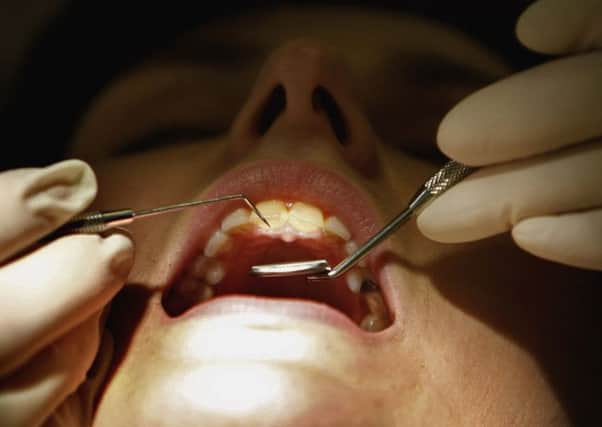Gap in dental health: Quarter of Scots have lost 12 teeth


When we think of health issues affecting Scotland many of us immediately think about issues such as smoking, obesity or heart disease before we consider our oral health and, in particular, the quality of our teeth.
However, as anyone who has ever had toothache will attest, having healthy teeth can make a huge difference to our overall health and quality of life.
Advertisement
Hide AdAdvertisement
Hide AdSo, how good is our dental health and how happy are we with the appearance of our teeth?
One way of examining these questions is by looking at data from the Scottish Health Survey, run on behalf of the Scottish Government by ScotCen. This survey includes questions on dental health as well as about a number of different aspects of our wider health.
According to the most recent data, around a quarter of adults in Scotland have less than 20 of the 32 teeth most adults originally have and around one in ten (9 per cent) have no natural teeth. Females (11 per cent) are more likely than men (7 per cent) to have no natural teeth as, unsurprisingly, are older adults with 42 per cent of adults aged 75 and over having no natural teeth. This is significant because, as the population ages it is important that people retain teeth in order to eat a balanced diet.
However, this does not mean that the youngest adults don’t necessarily have problems with their dental health. Almost all (99 per cent) of those aged 16-24 have at least 20 of their natural teeth but 16 per cent said that they experienced toothache in the last month. This compared to only 8 per cent of adults aged 75 or over.
Of course, the impact of toothache or pain in your teeth can be minimised if it can be examined and treated quickly. However, data suggests it is possible that we might not always go to the dentist immediately when we need treatment. When asked, a third of all adults with at least some teeth said that if they went to the dentist tomorrow they think they’d need treatment. This was more of an issue for men – 37 per cent – than women – 29 per cent.
In total, 14 per cent of Scottish adults are fairly unhappy with the appearance of their teeth and 5 per cent very unhappy.
Of course, improving the nation’s teeth depends upon people actually attending their dentist. With data from earlier years of the Scottish Health Survey suggesting that four in ten Scottish adults are nervous about going to the dentist, a quarter have not been to the dentist in the last year, and one in ten has not been in the last five years, there is perhaps still some work to be done before our dental health is as good as it could be.
Diarmid Campbell-Jack is research director at ScotCen Social Research.
